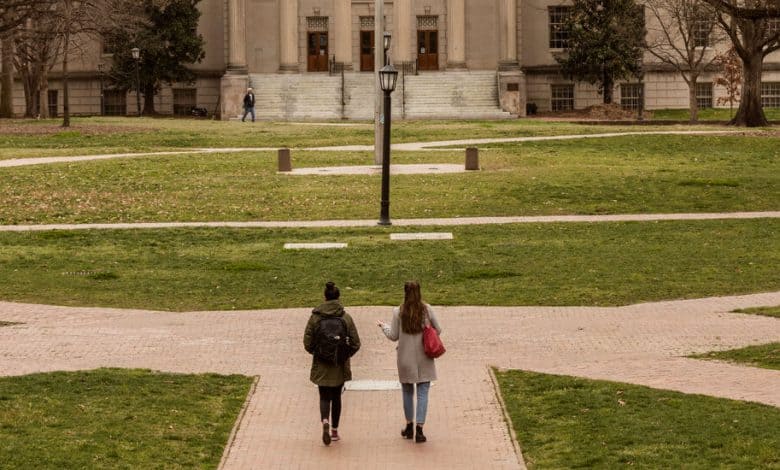The Best College Is One Where You Don’t Fit In

This time of year, college campuses like the one where I live fill up with high school seniors preparing to make what feels like a momentous choice. The first imperative is to find a school that they can afford, but beyond that, many students have been advised to find one where they can see themselves. Too often, they take this to mean finding a place with students like them, even students who look like them — a place where they will feel comfortable. I can’t tell you how many families have described driving many hours to a campus somewhere and having their daughter or son say something like: “We don’t need to get out. I can tell already this isn’t for me.”
“How about the info session?” the patient parent asks.
“Nope.”
Choosing a college based on where you feel comfortable is a mistake. The most rewarding forms of education make you feel very uncomfortable, not least because they force you to recognize your own ignorance. Students should hope to encounter ideas and experience cultural forms that push them beyond their current opinions and tastes. Sure, revulsion is possible (and one can learn from that), but so is the discovery that your filtered ways of taking in the world had blocked out things in which you now delight. One learns from that, too.
Either way, a college education should enable you to discover capabilities you didn’t even know you had while deepening those that provide you with meaning and direction. To discover these capabilities is to practice freedom, the opposite of trying to figure out how to conform to the world as it is. Tomorrow the world will be different anyway. Education should help you find ways of shaping change, not just ways of coping with it.
These days, the first thing that campus visitors may notice are protests over the war in Gaza. These will be attractive to some who see in them an admirable commitment to principle and off-putting to those who see evidence of groupthink or intimidation. Any campus should be a “safe enough space,” one free of harassment and intimidation, but not one where identities and beliefs are just reinforced. That’s why it’s profoundly disturbing to hear of Jewish students afraid to move about because of the threat of verbal and physical abuse. And that’s why it’s inspiring to see Muslim and Jewish students camped out together to protest a war they think is unjust.
Refusing to conform can mean being rebellious, but it can also mean just going against the grain, like being unabashedly religious in a very secular institution or being the conservative or libertarian voice in classes filled with progressives. I recently asked one such student if he perceived any faculty bias. “Don’t worry about me,” he replied. “My professors find me fascinating.” Some of the military veterans who’ve attended my liberal arts university have disrupted the easy prejudices of their progressive peers while finding themselves working in areas they’d never expected to be interested in.
Over the years, I’ve found nonconformists to be the most interesting people to have in my classes; I’ve also found that they often turn out to be the people who add the greatest value to the organizations in which they work. I’m thinking of Kendall, a computer science major I had in a philosophy class whom I saw on campus recently because she was directing an ambitious musical. When I expressed my admiration at her unlikely combination of interests, she was almost insulted by my surprise and enthusiasm. Had I really stereotyped her as someone not interested in the arts just because she excels in science?
